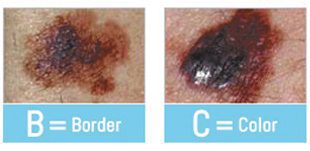By Dr. Noël Crosby, Au.D.
The Diabetes and Hearing Loss Connection
Diabetes can lead to nerve damage that affects many parts of the body, including your hands, feet, eyes, and kidneys. Diabetes can also cause nerve damage in your ears. Over time, high blood sugar levels can damage small blood vessels and nerves in the inner ear. Low blood sugar over time can damage how the nerve signals travel from the inner ear to your brain. Both types of nerve damage can lead to hearing loss.
Hearing loss is twice as common in people who have diabetes as it is in people of the same age who don’t. Even people with prediabetes (blood sugar levels higher than normal but not high enough yet to have type 2 diabetes) have a 30% higher rate of hearing loss than people with normal blood sugar levels.
Diabetes and hearing loss are two of America’s most widespread health concerns
More than 37 million people in the U.S. have diabetes, and an estimated 34.5 million have some type of hearing loss. That’s a lot of people, and it turns out many of them are experiencing both at the same time. A recent study found that hearing loss is twice as common in people with diabetes as it is in those who don’t have diabetes. Also, of the 133 million adults in the United States who have prediabetes, the rate of hearing loss is 30 percent higher than in those with normal blood glucose (blood sugar).
Right now, we don’t know how diabetes is related to hearing loss. It’s possible that the high blood glucose levels associated with diabetes cause damage to the small blood vessels in the inner ear, similar to how diabetes can damage the eyes and the kidneys. But more research needs to be done to discover why people with diabetes have a higher rate of hearing loss.
Protecting Your Ears is KEY
You can’t reverse hearing loss, but you can follow these tips to help protect your ears:
• Keep your blood sugar as close to your target levels as possible.
• Get your hearing checked every year.
• Avoid other causes of hearing loss, including loud noises.
• Ask your doctor whether any medicines you’re taking can damage your hearing and what other options are available.
You should have your hearing tested by an audiologist (a health care professional who evaluates your hearing for medical problems) when you first find out you have diabetes and then every year after. Make it part of your diabetes care schedule. If you think you have hearing loss, talk to your doctor. They can help you decide if you should see an audiologist.
Hearing loss can be frustrating for you and your family, and it can affect your social life. There are many reasons to keep your blood sugar within your target range—protecting your hearing is just one of them. Plus, you’ll feel better and have more energy while you do it!
Risk factors for hearing loss
Other risk factors for hearing loss may include:
• aging
• frequent or prolonged exposure to loud noise
• genetics
• certain conditions, such as measles, mumps, meningitis, multiple sclerosis, and stroke
• certain medications, including anti-inflammatory drugs, antibiotics, and diuretics, as they can cause permanent ear damage
• trauma to the ear through head injuries
• certain chemicals, as they can cause damage to the ears
Signs of Hearing Loss
Hearing loss can happen slowly, so it can be hard to notice. Often, friends and family members will notice your hearing loss before you do.
Signs of hearing loss include:
• Often asking others to repeat themselves.
• Trouble following conversations with more than one person.
• Thinking that others are mumbling.
• Problems hearing in noisy places, such as busy restaurants.
• Trouble hearing the voices of small children and others with quiet voices.
• Turning up the TV or radio volume too loud for others who are nearby.
• Problems with your inner ear may also affect your balance.
If you feel that you or someone you love has hearing loss, make an appointment to see an audiologist to have it confirmed. It may be something as simple as removing excess earwax. However, if it is more serious, an audiologist can help you find a solution that is right for you.
Call Today to make your appointment 941-474-8393
 Southwest Florida's Health and Wellness Magazine Health and Wellness Articles
Southwest Florida's Health and Wellness Magazine Health and Wellness Articles

